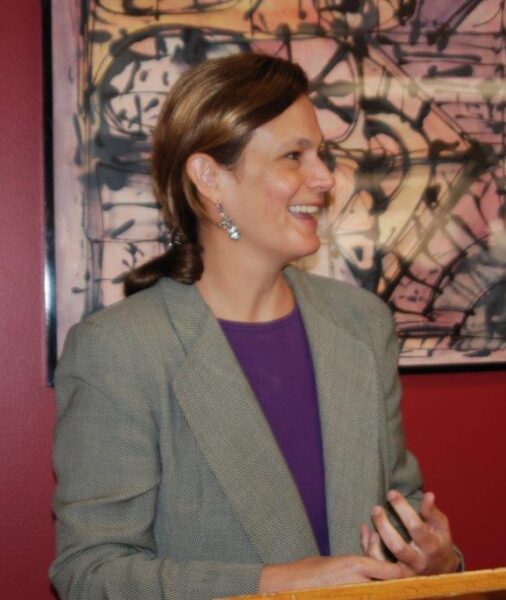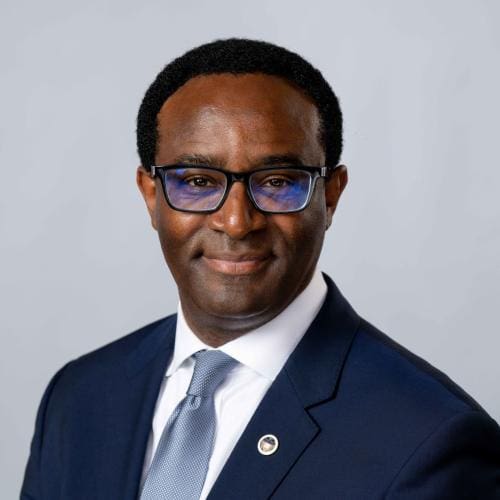For my final Perspectives column as AHA president, it is both a joy and a privilege to interview my fellow Dartmouth College alum Erika Pani.

Erika Pani will receive the AHA’s Honorary Foreign Member award at the 2026 annual meeting in Chicago.
Dr. Pani serves as research professor at the Centro de Estudios Históricos, El Colegio de México, and is the author of six books, including most recently Torn Asunder: Republican Crises and Civil Wars in the United States and Mexico, 1848–1867 (Univ. of North Carolina Press, 2025). Her comparative, transnational scholarship has reshaped our understanding of the intertwined histories of the two nations. In the conversation that follows, we discuss her path into the historical discipline, the lure of 19th-century politics, and the challenges and opportunities historians confront today.
During my tenure as AHA president, I have had the pleasure of spotlighting historians whose work reframes familiar narratives and broadens the audience for our discipline. Dr. Pani occupies a special place in that pantheon and is the recipient of this year’s Honorary Foreign Member award. Like so many colleagues, I have learned from her generosity at conferences and in print, and I trust readers will find the same enlivening blend of rigor, humor, and humanity in the exchange below. As you read, I invite you to consider how her insights about comparative history, liberal education, and the role of civic debate mirror the AHA’s own commitment to public engagement and global perspectives—priorities that will, I am certain, endure well beyond my presidency.
I want to start by asking how and why you became a historian. What made you pursue this career?
I always liked history. In high school, I had awesome teachers. And then in college, I fell in love with this discipline that allowed you to deal with everything. Everything has a past, so you can look at whatever it is that interests you and try to see where it came from and how it has changed over time. By the time it came to declare a major, I thought that history was what I wanted to do. I talked to my parents about declaring a history major, and my father asked what I was going to do with “telling stories.” He said, “Are you thinking of becoming a Jesuit?” So I majored in government, because I thought I needed to be useful to the world. I worked for a little over a year in government and decided that it just was not for me, or very useful to the world. I went to grad school to study history and have been very, very happy since.
How would you characterize your work? What are some of the questions that you’re trying to answer?
I’m obsessed with the 19th century. I think that we build how we live together through politics, and solve the problems of living together in a society through political means. Studying the 19th century is especially important, because it recast how we think about political authority and what makes it legitimate. The 19th century reinvents, to take Edmund Morgan’s expression, the political fictions that make politics work: Popular sovereignty, individual rights, the common good became its central tenets. I think that the 19th century set down the challenges and ideals that we have tried to live up to as societies. They’re ideals that will never be fulfilled, but they’re there and we’re supposed to organize the exercise of political authority around them. These are the challenges that we haven’t met, but I don’t think we have come up with anything better.
The 19th century recast how we think about political authority.
To the historian, the 19th century is an exciting political laboratory. I am interested in the visions of those who, in the midst of turmoil and contention, tried to build states and nations. When I wrote my doctoral thesis, I started looking at the men who supported Maximiliano in the 1860s, as he sought to restore a monarchical regime. They weren’t idiots, they weren’t evil—so how could the idea of an empire in Mexico, supported by a foreign army, make sense to them? I’ve since tried to make sense of Mexico’s 19th century, which is often considered to be little more than chaos, and tried to find logic in the madness.
It’s a very hard and complicated period of Mexican history, and your work has been very important in helping the world understand it better. Throughout your career, what is your favorite project that you’ve worked on?
It is the book that I published this year, Torn Asunder. It came about from the encouragement of my colleagues who write US history. From 2012 to 2016, during the sesquicentennial of the US Civil War, I was very lucky to be invited to these marvelous meetings where they discussed the era, at a moment when the transnational turn was gathering speed and energy. These colleagues thought it would make sense to find parallels and compare the history of concurrent civil wars in Mexico and the United States.
There are a lot of comparisons in the book, but it also shows how these wars were entangled: What happened on one side of the border affected the other. US Civil War historian Don Doyle suggested I pitch the book to the University of North Carolina Press. I thought I could write pretty efficiently, since I had taught on both wars. So I promised to turn in the manuscript in the summer of 2020. It was not done until Holy Week of 2024. The press was incredibly patient, and I learned so much. I read amazing historiography from both the Mexican side and the American side, and then some in French history too, and so it was a very, very enriching experience. Hopefully, people will like it.
You lead me beautifully into the next question. You are a true international, transnational historian. You’ve lived and worked in both countries. How do you see history practiced differently in Mexico than in the United States?
It’s an interesting question, which I’m probably not the best to answer from such a privileged site in Mexico. My institution is small and has amazing resources, including an extraordinary library and time to do research. The history department has only a PhD program, and our students, who come from all over the Spanish-speaking world, are amazingly talented.
Mexican historians are very widely read, but stepping beyond Mexican history is complicated. On the one hand, we have “historia patria,” the heroic history of the nation that is thought to be very important to civics and is an essential part of K–12 education. But because we don’t have a liberal arts structure in higher education, history kind of disappears in college, just as students could approach the past from a more open and critical perspective. The general education courses required of most postsecondary students in the United States are practically unheard of here, and I think that this pushes academic historians to write very specialized texts. We aren’t expected to make history interesting for nonhistorians. On the other hand, because Mexican historians tend to focus on Mexico—for reasons that have to do with the development of history as an academic discipline and the availability of resources—they don’t often engage with broader, alternative frameworks, such as Atlantic history. Nevertheless, in recent decades, colonial historians and those who work on independence have shown us how useful it can be to trace influences, connections, and movements across oceans and over national borders that did not yet exist. These broader perspectives can also throw light on the more recent past. I hope Torn Asunder’s transnational frame of reference reveals the parallel, shared, and entangled histories of Mexico and the United States.
From your perspective, what are some of the big challenges we’re facing now as historians?
I think that history is especially relevant in difficult times, though certainly not because it repeats itself or rhymes. I think that we historians tend to make the mistake of wanting to warn our fellow citizens, “This is fascism,” or “This is Germany in the 1930s.” But current events are usually completely different. We write history to make people think, to help them understand the past, and then look at the present with the references and reflexes of what we call thinking historically.
We historians want to warn our fellow citizens, but current events are usually completely different.
I, for instance, have tried to look at conservatives in the past as not necessarily wrong or immoral. I tried to be fair to these men, who tried to make sense of the world around them and respond to its challenges. One could try to do the same with some of the characters that we read and hear today.
On the other hand, we need to make history relevant. Not because it anticipates what’s going to happen, not because it is a warning, but because the weight it gives to context and its broad perspectives can bring the temperature down and force us to be more reflective.
What do you think about the role of technology in history today?
HathiTrust changed my life. To have all those pamphlets and documents—it’s amazing. The fact that so much archival material is now available online has been unbelievable and wonderful. On the other hand, I still can’t wrap my head around artificial intelligence. I had help from my generous younger colleagues, who tried to coach me in using it to teach. I wanted students to get an answer with ChatGPT, then look at it and say what was wrong with it, and hopefully think about AI’s reach, limitations, and risks. I failed miserably.
Yet I don’t think that forbidding AI from the classroom is the answer. All things considered, it would be like saying “no fountain pens” when they were invented. It is a challenge to help our students use new technologies in a way that will enhance the learning process and not substitute for it. But historically, we know that technology has those two faces and the Luddites’ fears usually don’t come true.
What is it that you’re most optimistic about when you think about the field of history in the years ahead?
Our students and the theses that they are writing. They’re so audacious! They’re doing research that is very broad ranging and taking on really big questions. They’re telling stories about the loyalties, recruitment, and finances of war in the Americas; teachers in 19th-century Oaxaca; the invention of history as a discipline in 19th-century Chile—which uncovers struggles over power, resources, and the imagination. Young historians are what makes me most optimistic about history.
This interview has been edited for clarity and length.
This work is licensed under a Creative Commons Attribution-NonCommercial-NoDerivatives 4.0 International License. Attribution must provide author name, article title, Perspectives on History, date of publication, and a link to this page. This license applies only to the article, not to text or images used here by permission.

